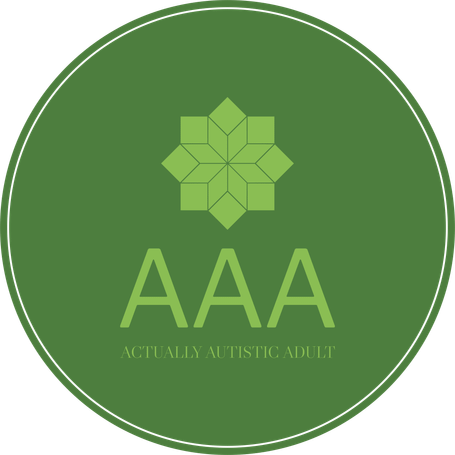SpellX 2024
Written in March 2024
Saturday 24th February was SpellX, an I-ASC event for nonspeakers to showcase their talents and insights in a virtual salon style event. Online events are often much more accessible for autistic people anyway (we don't have to leave the house, adhere to a dress code, or mask up to do the neurotypical listening thing) and it also meant we got to hear from a whole range of people. Two hours was long enough for more than 30 presentations plus discussion. Some spellers used the voice of their AAC device to create the audio experience while others had friends, family members or supporters reading their words aloud.
The theme this year was “outside the box” and everyone interpreted that in their own way. A common thread was the idea that nonspeakers are perceived by society as being in a box, one that society doesn't want to look into, or perhaps they don't realise that there's a whole person inside the outside of the box.
----
“My norms exceed your box... A life larger than a box” – Narayaha Tiruppikuzhi
----
“hear me and hear my hopes for all nonspeakers to break free from their box of silence” – Stephen Schwartz
----
"while others look for me in the box, I will not be there. I will not fit into any box society demands. I'm not that type of human. I will joyfully live my life out of the box” – Ayandiswa Sibindi
----
“I'm like a book with a cover that doesn't match” – Lian Erasmus
----
Sometimes the box was something the person felt trapped by, if the box is the apraxia (the reason behind the nonspeaking status of the contributors), sometimes the box was something they felt put into by society, and sometimes the box was a positive thing, something which contained cause for celebration or education.
Goal Gang (Jack Haynes, Caden Rainey, Zac Duncan, Joel Nyland, Gabe Roth, Caleb Austin, Ryan Wotton, Jackson Khabra) made a presentation about the Zoom box; one benefit of the pandemic was that more people used video conferencing software and this enabled more social connection and meaningful interaction between people for whom this method was much more accessible. The box in this case was the thing that allowed something positive to happen, something positive which now goes far beyond the confines of that box.
The Mod Squad (Otto Lana, William De Rosario and Bella Santoyo) came at the box concept from different angles, blowing the lid right off it! First they explored how society sees nonspeakers as empty boxes, then they flipped the script to use the box as a CARE package, using this acronym to explore the reality of being a multi-modality communicator.
Swarit Gopalan took us on a philosophical journey through what was in, or out of the box. His thoughts were read out and appeared in text on the screen over some beautiful imagery, ending with “The core of our existence, is that in or out?”. I've followed Swarit's Facebook page for a while, and he really is a deep thinker and young philosopher.
Water was also a thread through some of the presentations. Cooper Ferguson took us on holiday and described the challenge and fun of wild swimming, something that Sambhav Bhatia also loves to do. I know Otto adores being in the ocean and Keshav Anand's poem also talked about the water. Kaishawna Fleming described a fluid, wandering nature of her thoughts and perhaps this is the connection – the fluid, all-encompassing nature of water is both calming, and a metaphor for the fluidity of the connections and thoughts in our brains?
There were some other mic drop moments, notable from Cole Bridges who addressed the paradox of people assuming incompetence and a lack of intelligence because he's a nonspeaker, while at the same time accusing him of being a master manipulator, using behaviour to get his own way. That was a powerful message and one I will store away for whenever this paradoxical myth needs busting.
Matthew McGrath educated us all about his experiences learning self-defence; one of the most significant aspects for him was being treated like anyone else, not wrapped in cotton wool and shielded from things that might hurt. He loved being thrown around and getting that proprioceptive sensory experience that (well meaning) caregivers try to avoid.
We also heard from older spellers Rob Presson and John Ritchie. John learned Spelling to Communicate (S2C) at 37, proving that it's never too late to learn this method of communication, while Rob says he's been through all the interventions, so he knows a lot about what works and what doesn't. Rob lives with a family he's not related to, but where he's treated as the adult he is, and where he has meaningful relationships with everyone.
Older spellers are often treated like children, something that Alexis Barrett opened her presentation with. This was a powerful look at how S2C has opened up the world for her and helped people see who she is, not treat her like the child they assume she must be because she is nonspeaking.
All the video presentations are available on the I-ASC youtube channel and are all worth your time to watch for insight into the lives of nonspeakers and the huge impact that access to communication has had on their lives. Here's a link to the playlist if you want to see for yourself. https://www.youtube.com/playlist?list=PLuJKrJPQrIz6GsvzVyJc3ZSurJeK2XNUt
We need your consent to load the translations
We use a third-party service to translate the website content that may collect data about your activity. Please review the details in the privacy policy and accept the service to view the translations.
